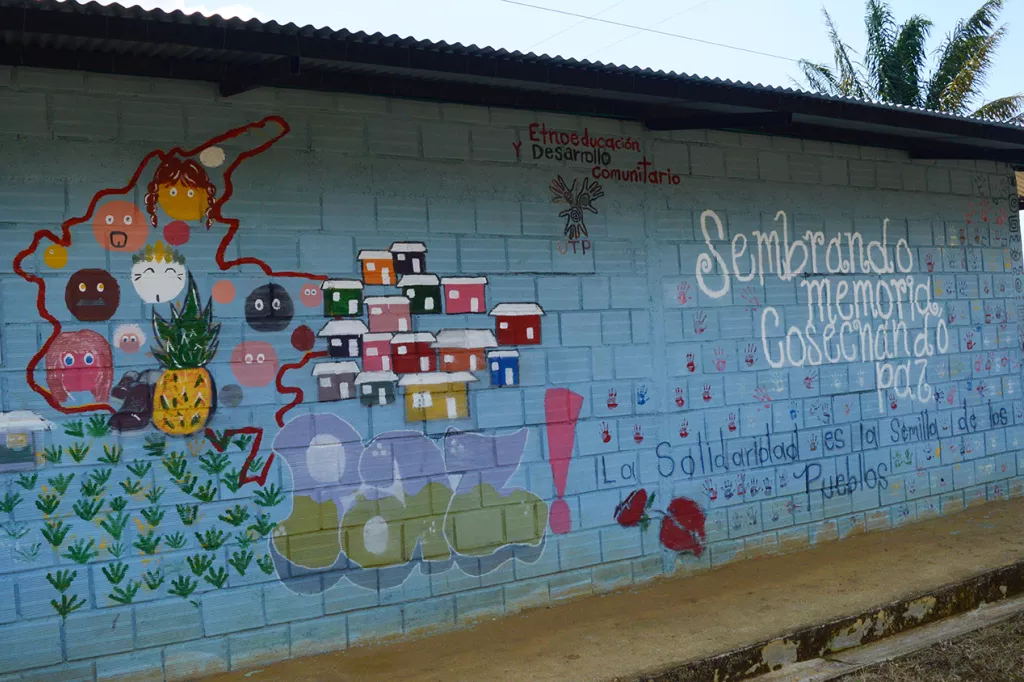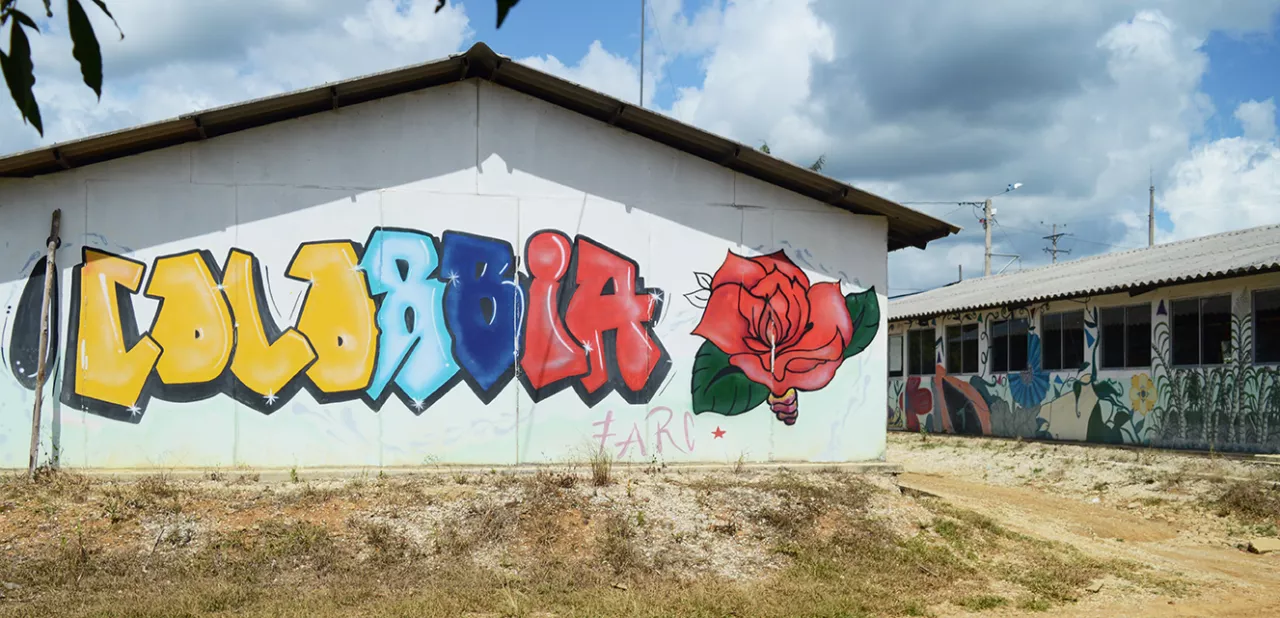Memory and solidarity with the victims in Colombia

Colombia commemorated the National Day of Remembrance and Solidarity with the Victims of the Armed Conflict, or “Día Nacional de la Memoria y la Solidaridad con las Víctimas del Conflicto Armado”, in Spanish. The date of the commemoration, the 9th of April, comes from what many see as the start of the political armed conflict in the country, as it marks the date when the political leader Jorge Eliecer Gaitán was killed in Bogotá in 1948. The assassination sparked a wave of violence, and in time different armed actors were formed in the country, fighting for power and territory. The internal conflict has since tormented the civil population, and the most affected have been those already vulnerable communities in rural areas.
The government's slogan for the commemoration this year is "Hagamos memoria para Nunca repetir la historia" which can be translated to "Let us remember so that history never repeats itself." However, the word history can be misleading because the armed conflict is still ongoing.
Presidential elections in Colombia and escalating violence
A clear example of this is being manifested right now. Soon millions of Colombians will decide who will become the country's next president. In election times, there have historically been surges of violence from the different armed actors in the country, and this time around is no exception. 75 human rights defenders have been killed this year, there are 36 registered massacres in the country with 133 victims, two national politically motivated armed strikes have been announced affecting millions, and the forced displacement continues with thousands of Colombians having fled their homes in 2022. Remembering to not repeat seems to be easier said than done at an institutional level, but for the victims, it can on the contrary be impossible to forget.
Number of victims in Colombia keeps ticking up
The definition of a victim in the Colombian context of the violence is a person who individually or collectively has suffered harm due to events occurring on or after the 1st of January 1985; as a consequence of severe and gross violations of international human rights law and breaches of international humanitarian law. In a country with a population of about 50 million people, there are 9 278 531 registered victims as of the end of May, and the number keeps ticking up. This means that almost every fifth Colombian is a direct victim of the conflict in some way. The absolute majority of the victims are internally displaced, people that had to flee their homes for their security and survival. The resilience of these victims can, however, not be understated. For many the different types of violence, they were exposed to become one more reason to try and find solutions and guarantees of their rights. They are fighting for the present and future generations, as well as for the memory of those who are no longer with us.

Remembering, understanding, and spreading stories
The path of resilience and reconciliation however has had its ups and downs. In 2016 a national vote was held in Colombia about whether to support or reject the Peace Treaty that was negotiated between the Government and the Revolutionary Armed Forces of Colombia, FARC. Against the odds, the ones opposing the peace deal won by a small margin. When analyzing the patterns of how the population voted one thing became very clear – Colombians living in bigger cities or regions far from the war tended to vote no to the agreement, while people who had been more affected by the armed conflict were those most open to reconciliation. Indeed, it is the people that suffered the ultimate consequences of the conflict that truly know the value of peace – being all too aware of the consequences of the alternative. Remembering, understanding, and spreading their stories is hence a way to learn the importance of not repeating history.
Civil society in Colombia have organized to fight the war with alternatives that seek peace
Speaking up and organizing for the construction of peace and their rights as victims, however, means risking being targeted again. Colombia is one of the most dangerous countries in the world for human rights defenders. Despite the immense risks thousands of people from civil society have organized to fight the war with alternatives that seek peace, a new beginning on the war they have lived through and do not want future generations to revive.
Remembering the victims, the ones alive, the ones killed and those who disappeared are remembering and recognizing why the conflict must find a peaceful solution. It is nevertheless a challenge to make the experiences of the victims a collective memory of a nation and in particular help, those never affected to comprehend and create solidarity.
Through art projects, state institutions, civil society organizations, and the days like the 9th of April, the solidarity with the victims is built bit by bit, and with a collective effort, there can be hope for change. It is a task for all to build peace because we all have the power to change.
There is no democracy without civil society #365DaysForCivilSociety
Andra nyheter

The power of people powered Public-Private Partnerships
Public–Private Partnerships (PPPs) are often discussed in terms of roads, power plants, housing, and other large infrastructure projects. But as discussed on the People’s Partnership Podcast, PPPs are...

ForumCiv’s social media accounts labelled as “extremist materials” in Belarus
Important message to our Belarusian followers. Any interaction with our content can now lead to legal consequences in Belarus. Please read the information below and take the necessary precautions for...

ForumCiv enters new strategic partnership
ForumCiv is proud to announce a new three-year strategic partnership with Sida, totalling SEK 137 million.